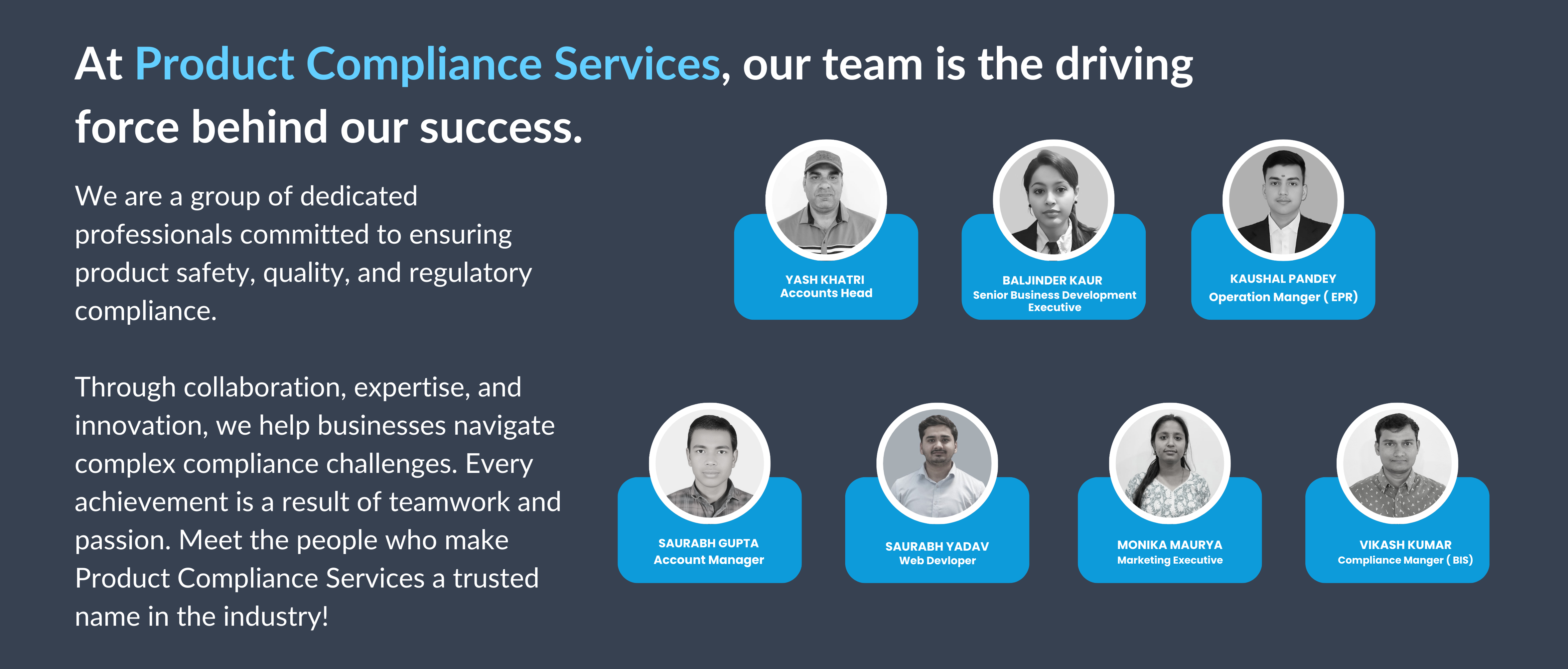Chosen by the World’s Most Trusted Brands








































































Comprehensive Compliance Solutions for All Business Requirements
Our Expertise
Why Choose Product Compliance Services?
At Product Compliance Service, we utilize our extensive industry knowledge to enable companies to remain compliant, avoid risks, and optimize operational effectiveness for long-term success.
- Expertise & Industry Knowledge
- Complete Compliance Solutions
- Regulatory Updates & Risk Management
- PAN India Services
- Proven Track Record
- Dedicated Support Team
Your success is our success. We take pride in being a trusted partner in your journey toward delivering high-quality, compliant, and reliable products to the market.
Start Your Journey Now with the help of Product Compliance Services
How It Works – Your Certification in 3 Easy Steps



Meet our expert team

Contact Us
Expert Help, Simplified
Please fill this form for Free Consultation
Call Us
+91-9310335090 , +91-9205583655
Mail Us
Working Hours
Mon - Sat (9 Am - 5.30 Pm)


